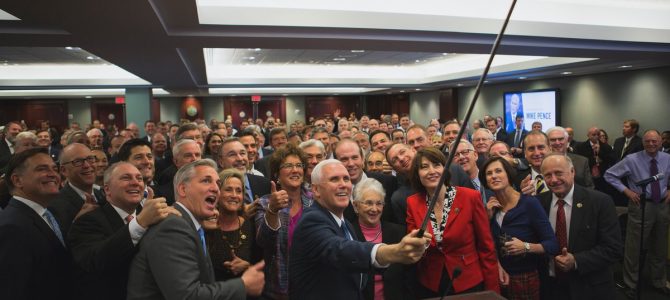The National Republican Senatorial Committee (NRSC) released fundraising data for January showing an intake of more than $8.3 million, especially bolstered by small-dollar donations. Early in January in the aftermath of the Capitol upheaval, big businesses showily claimed they would no longer fund Republican politicians, fueling corporate media and Democrat excitement about how Republicans would never recover. Truth overcomes narrative yet again.
“Bolstered by our strength in low-dollar donations, the NRSC is well-equipped, ” said NRSC Chairman and Sen. Rick Scott of Florida.
Media swooned over the idea of the GOP losing funding from donors who routinely oppose Republican voters’ concerns, blaming especially Sens. Ted Cruz and Josh Hawley and the 147 Republican congressmen who objected to the certification of the 2020 presidential election.
Despite the fear media fanned, the NRSC raised $4.24 million over the internet that same month, obtaining more than $100,000 each day in January. About $6.8 million of the $8.3 million total for January came after the Georgia Senate runoff losses.
The NRSC currently has $17.2 million cash on hand, it says, compared to $7.6 million cash on hand one year ago. The average gift in January was $32, with 9,073 first-time donors.
Manufactured fears over the advertised withdrawal of donations from big-name corporations such as AT&T, Nike, Comcast, Dow, Marriott, Walmart, and Verizon caused a flurry of editorialized articles theorizing about the fiscal troubles of the Republican Party moving forward. Yet the opposite happened.
The @NRSC starts the 2022 cycle in a strong financial position!
We are well-equipped to support our Republican candidates as we fight together for freedom and opportunity across the country. https://t.co/NxqgZeaAsn
— Rick Scott (@ScottforFlorida) February 9, 2021
Political action committees headed up by corporations can only donate a maximum of $5,000 annually, a minuscule number in the grand scheme of things. In the 2019-2020 election cycle, corporate PACs only contributed less than 3 percent of GOP fundraising committee intake.
In the Republican fundraising ecosystem, corporate PACs are becoming largely irrelevant, replaced by the energy and enthusiasm voters have for former President Donald Trump. Trump has converted the party into a broader base of support that has translated into much higher small-dollar donations from many more people, as the January NRSC receipts show.
The real threat to Republican fundraising is therefore congressional Republicans participating in and furthering the retroactive impeachment of Trump. That deeply offends and turns off the small-dollar donors who provide the bulk of Republicans’ campaign cash and continue to be hugely supportive of Trump.
Small-dollar donations of less than $200 are now at least half of typical Republican campaign dollars. K Street is losing its grip on the Republican Party while consolidating its influence over Democrats. The fact is, many companies have been unclear and purposefully vague about pulling donations, and arguably were vocal after the Capitol breach to save face.
Ford noted they were suspending contributions “for now,” and Goldman Sachs claimed it will be “evaluating future contributions.” Bank of America cited “the immediate future” as their threshold and Charles Schwab claimed it was discontinuing contributions for “the remainder of the year.” Several other corporations only claimed they were “reviewing” prior donations, not committing to any actions about future donations. This notably includes CVS, Delta, ExxonMobil, FedEx, and Walmart.
The $8.3 million raised the NRSC will prove to be critical in 2022, as the Republican Party fights back in midterms to reclaim Congress. On average, the party that controls the presidency has been shown to lose 30 seats in the House and Senate combined during midterms.







